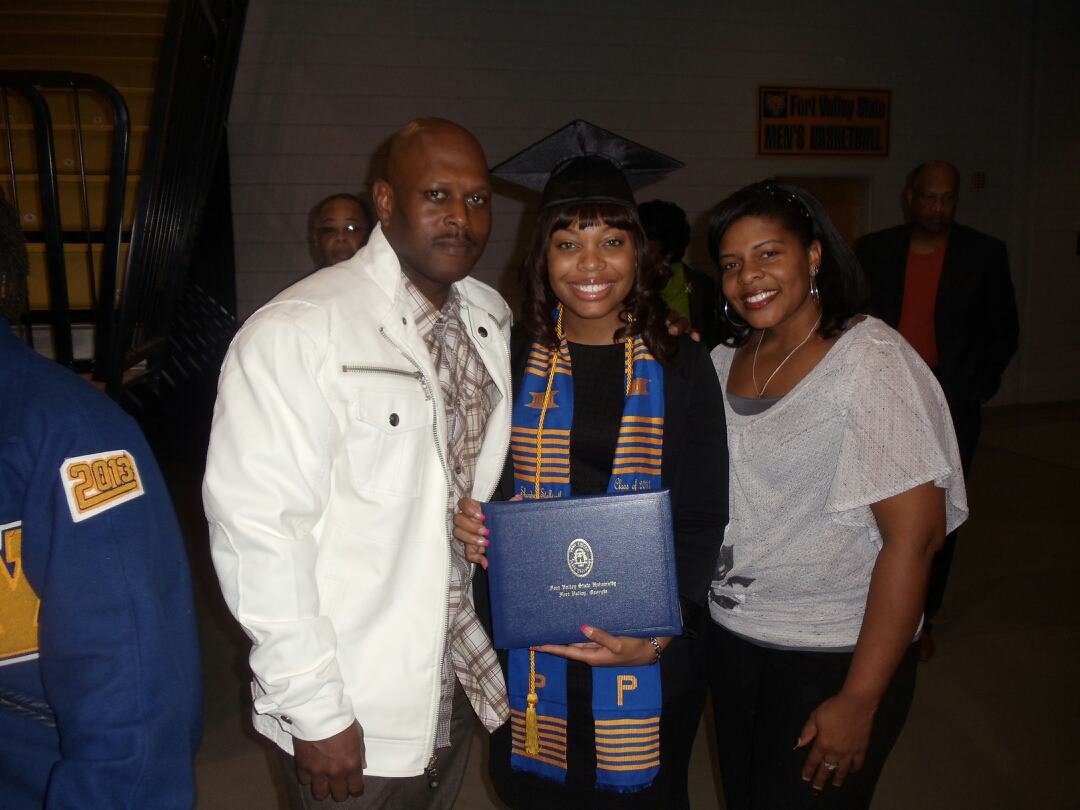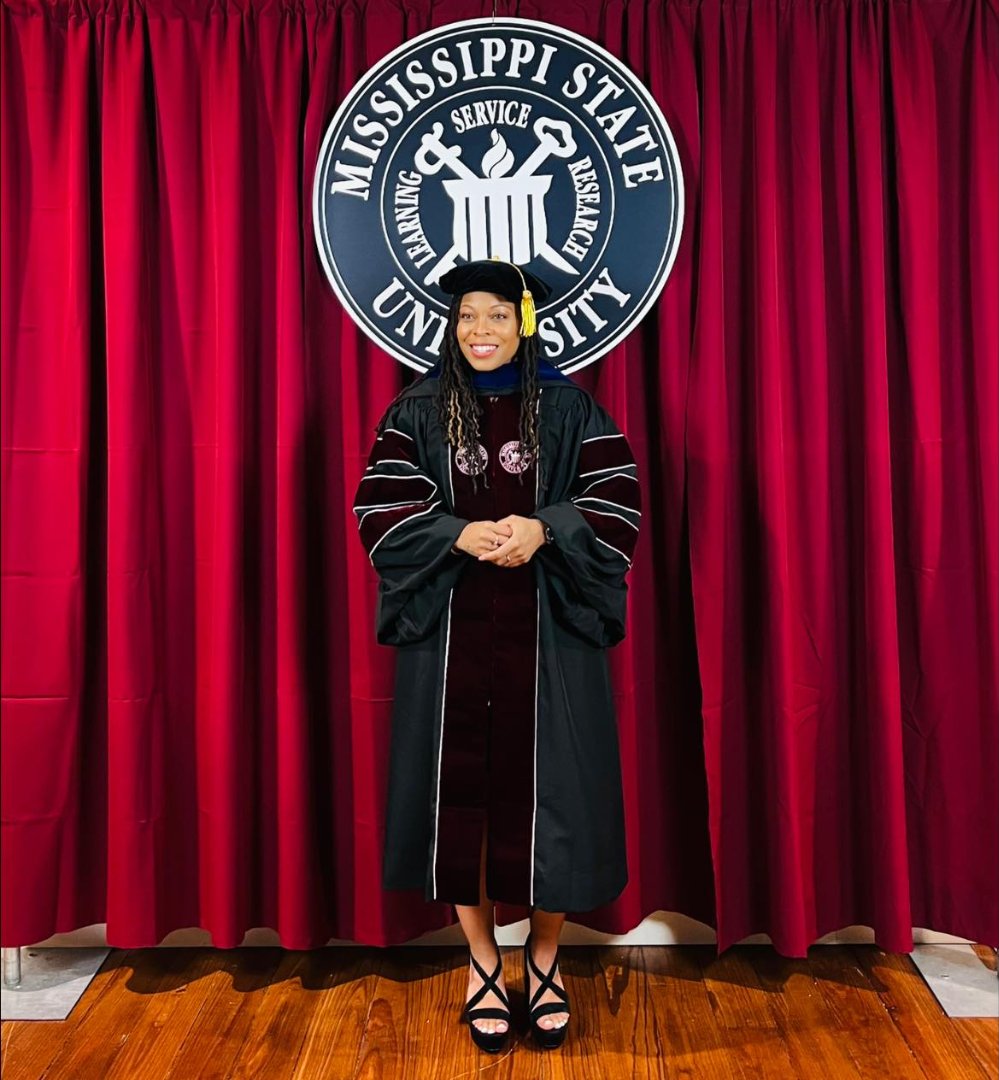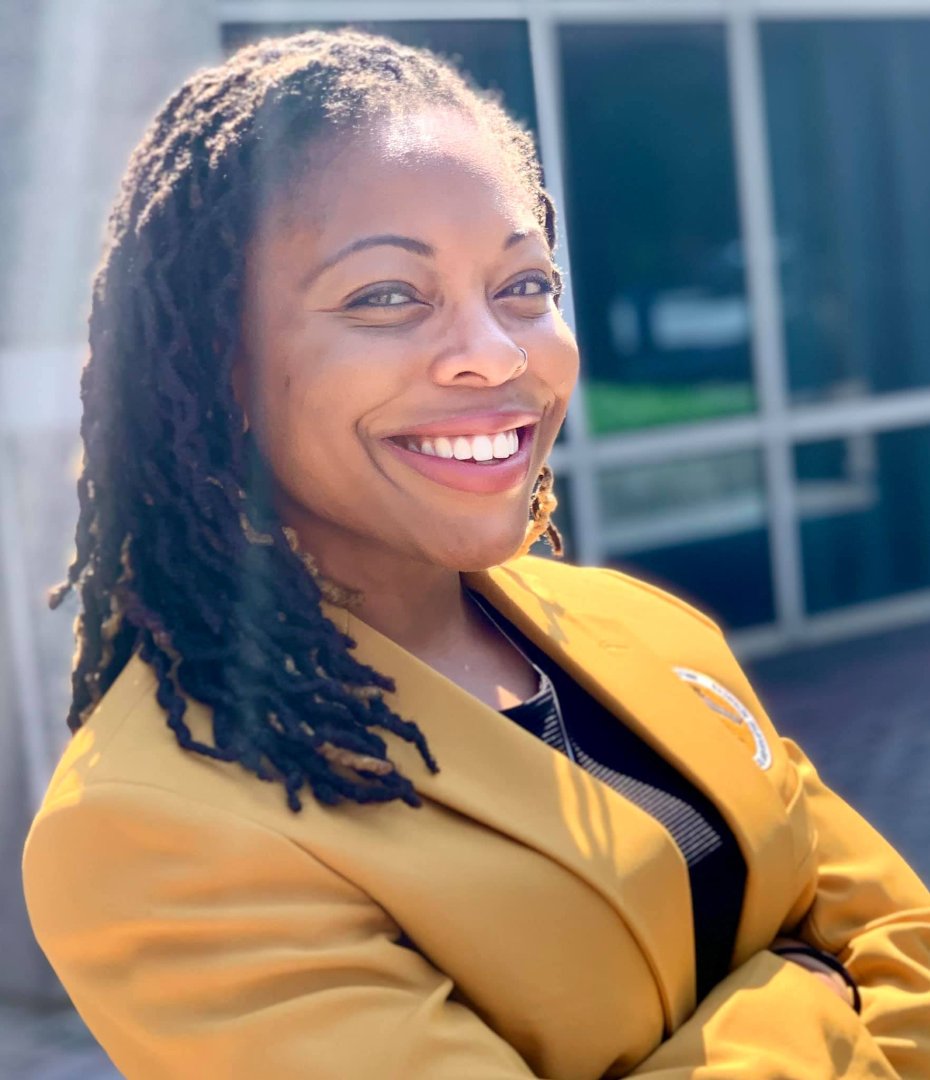“Opportunity will always find those that it is meant to find” is Shandrea Stallworth’s motto for how her learning and work experiences led to becoming a senior agronomist for the second largest pet food manufacturer in the world.
The Biloxi, Mississippi, native dreamed of becoming a medical doctor. Agriculture never crossed her mind as a possible career choice. Not realizing the broadness of the agricultural field, Stallworth expanded her perspective at Fort Valley State University (FVSU).
She moved around a lot throughout her childhood since her father served in the military. However, when he received orders for Hawaii her senior year, she decided to live with her aunt who was stationed at Robins Air Force Base in Warner Robins, Georgia. Her aunt recommended that she attend nearby FVSU.
Still interested in becoming a medical doctor, Stallworth said her parents did not attend college, so she felt like a fish out of water. It took FVSU plant biotechnology professor Dr. Sarwan Dhir to spark her curiosity in plant science and biotechnology.
Dhir pitched the program and enrolled her in the Introduction to Biotechnology course. “I had never been so intrigued,” she admitted.
One of her first experiential learning activities was dissecting plants. She learned how to use a gene gun to observe the success of an experiment.
“It was the first time I saw immediate success in a science project. I had never been in a space where I could problem solve and critically think,” Stallworth said. “I realized there is not a big difference between a medical doctor and scientist. I can be a doctor in my own right.”
She laughed noting it was a running joke while at FVSU that she was meant to major in agriculture. Many people thought she had a connection to the Stallworth Agricultural Research Building on campus (named in honor of agriculture professor Dr. Houston Stallworth).
Although there is no connection, Stallworth believes she was destined to pursue agriculture. During her time at the historically Black university, she presented at several conferences and mentored other agricultural students.
“That put me so ahead of my peers. The only choice was to attend graduate school,” she said.

The FVSU graduate earned her degree in pant science and biotechnology in 2011. Her path diverted as she pursued a master’s in public health online but decided to apply to Auburn University. It took the support of Dr. James Brown, FVSU’s agricultural and natural resources program leader and former Auburn professor, to turn a lost opportunity into a second chance.
Stallworth received a full-ride scholarship through Auburn’s Louis Stokes Alliances for Minority Participation (LSAMP) Bridge to Ph.D. Program because of her participation in FVSU’s LSAMP Program. She studied crop, soil and environmental sciences with a focus in plant breeding, where she engaged in peanut research.
Coming from FVSU, Stallworth gained not only knowledge but good work ethics. This prepared her for the challenges she faced at Auburn when she questioned her abilities due to a professor. It took another professor speaking up for her that encouraged her to stay.
“I realized how protected I was at Fort Valley State,” she said. “My major had diverse students even though I was at an HBCU.”
Stallworth further found her voice when joining the Minorities in Agriculture, Natural Resources, and Related Sciences (MANRRS) program and the Black Graduate and Professional Association at Auburn.
“That was how agriculture stuck for me,” she said, after becoming a national officer with MANRRS. “These opportunities kept me going. I had a space to be myself and make connections. That was my family.”

Stallworth earned her master’s degree in 2016 and soon after started her doctoral program at Mississippi State University (MSU) in the plant and soil sciences department. She was recruited to her home state at the MANRRS Regional Conference after eavesdropping on a conversation. This opportunity also offered a full-ride scholarship to study weed physiology and genetics.
On making the decision to focus on genetics, the Mississippian’s first encounter with a Black female geneticist was at FVSU.
“I would have never thought this was possible if I had not seen my favorite biology professor, Dr. Shakespeare,” she said. “I wanted to be a trailblazer like her.”
Opportunities at MSU included interning at Corteva Agriscience and serving as a three-time National Aeronautics and Space Administration (NASA) graduate research fellow. NASA supported her research on rice production and her work on developing a program that exposes K-12 students to science, technology, engineering and mathematics (STEM). She graduated in 2021 and was the first in 20 years to receive a Ph.D. in weed physiology and genetics from MSU’s College of Agriculture and Life Sciences.
Stallworth then started her career at Corteva Agrisciences as a weed scientist and herbicide biologist. A year later, she transitioned to nonprofit organization Rodale Institute in Atlanta, Georgia, to help grow the regenerative organic movement through agricultural research, education and outreach. Stallworth enjoyed serving a 13-state region, offering technical assistance and educational resources to farmers and producers.
“Organic production is a huge space that minorities could occupy, especially in vegetable production,” she advised.
A farmer’s praise of her work solidified her place in agriculture. The bridge to another career opportunity opened when Nestlé Purina PetCare contacted her on LinkedIn in 2023.
“I am going back into the science space as a senior specialty scientist,” Stallworth said. “I will be responsible for the global implementation and acceleration of regenerative agriculture programs across all five regions of Nestlé Purina PetCare.”
The young professional looks forward to growing in her new role to make an impact on sustainability.
“I really get to chart my own path. It gives me that same excitement I had starting my Ph.D.,” she said.
Her aspiration is to one day win the World Food Prize.
“It is equivalent to the Nobel Peace Prize for agricultural scientists,” Stallworth explained. “My sole purpose now is to expose people to regenerative agriculture practices. It gives me a space to put minorities right in the center of it.”
Her advice to students is to not accept “no” and to not be afraid to be a trailblazer.
“You never know what opportunity comes out of it,” she said.

